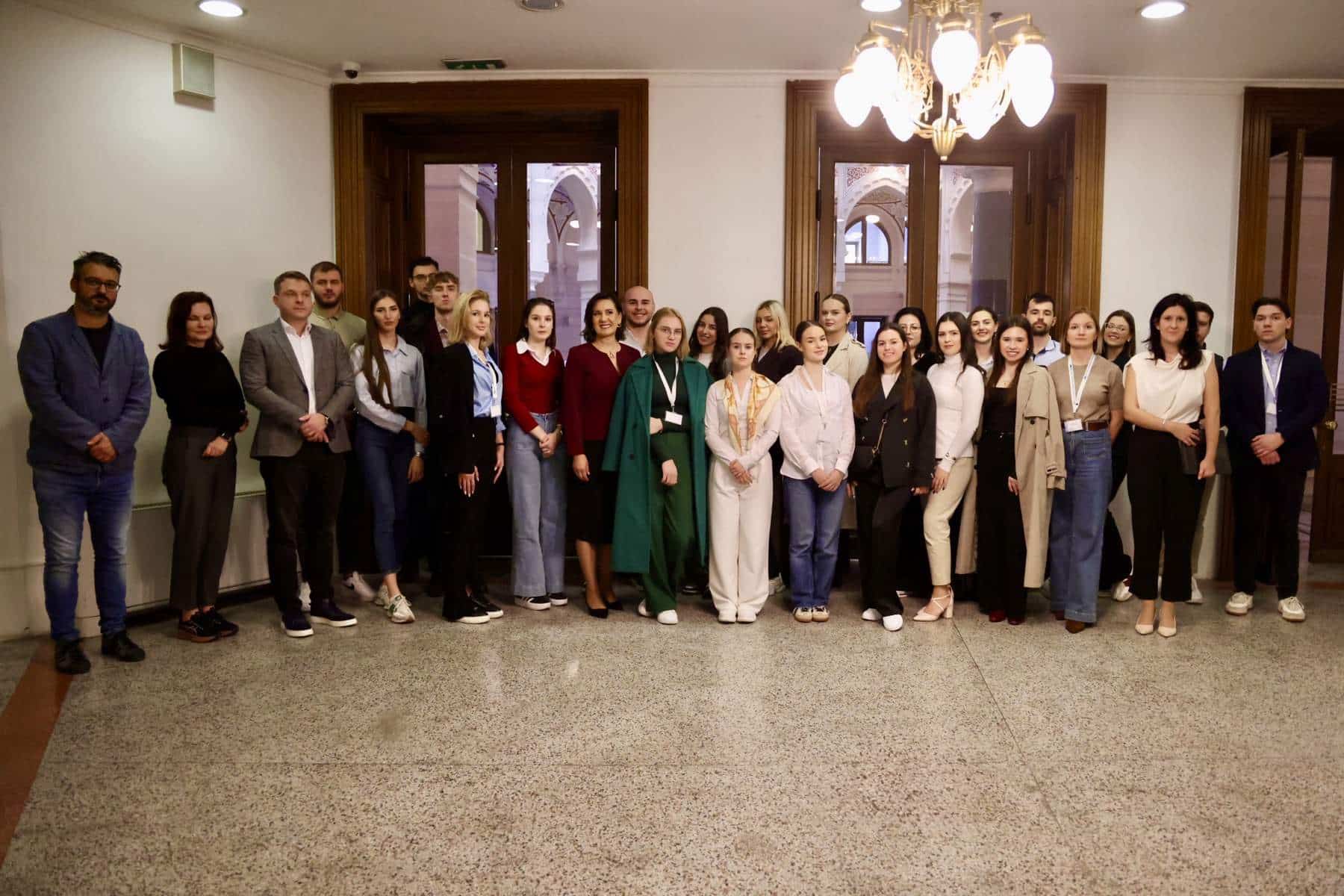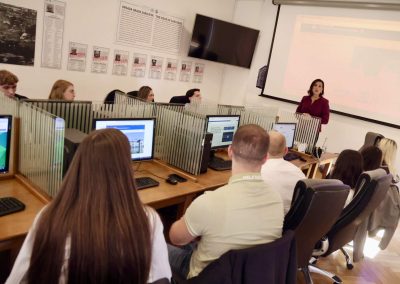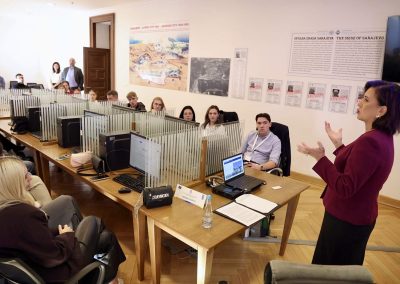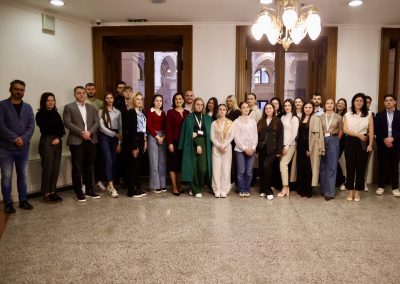Vijesti Informativnog centra o Međunarodnom krivičnom sudu za bivšu Jugoslaviju (MKSJ) Sarajevo
Participants of the Fifth School of Transitional Justice in BiH Visit Sarajevo City Hall and the Information Centre on ICTY Sarajevo
A reception for the participants of the Fifth School of Transitional Justice in Bosnia and Herzegovina, followed by a lecture at the Information Centre on the International Criminal Tribunal for the former Yugoslavia (ICTY), was held today at Sarajevo City Hall. The school gathers students, researchers, and legal professionals from across the country and the region.
The reception was hosted by Deputy Mayor of Sarajevo, Mirela Džehverović, who emphasized the symbolism of City Hall as a place of remembrance, renewal, and lasting commitment to peace.
In her address, Džehverović recalled the tragic events of 1992, when the City Hall was destroyed in the relentless fire, together with the priceless collection of the National and University Library of Bosnia and Herzegovina.
“The restoration of this building symbolizes a fundamental human truth – that despite great hardship, the citizens continued to nurture a culture of tolerance and equality that still defines our city today,” said Džehverović.
She added that today’s Information Centre in City Hall serves as a guardian of the legacy of the ICTY, the first international institution to deliver a conviction for genocide committed in Europe after the Second World War.
“We all bear a great responsibility to preserve the legacy of the Tribunal from oblivion and make it accessible – particularly through the education of young people who will become the decision-makers and ambassadors of peace in the future,” the Deputy Mayor emphasized.
The School of Transitional Justice, organized by the Association “Pravnik” with the support of the European Union and the United Nations Development Programme (UNDP), provides participants with the opportunity to learn from leading domestic and international legal experts, prosecutors, and researchers about the prosecution of war crimes, the role of international courts, and the importance of justice for long-term peace and reconciliation.




